When you get behind the wheel of your car, you anticipate a smooth, comfortable ride as you cruise along the highway. However, lately, it feels more like you’ve been tossed around in a washing machine. The incessant shaking and vibrations during your commute, especially when the steering wheel shakes when braking, is far from ideal, making your daily drive to work a frustrating experience. If you’re wondering “why is my car shaking,” it’s time to dig deeper and find out what’s causing this unsettling issue.!
Why is my Car Shaking
If you’re experiencing shaking or vibrations while driving, particularly when the steering wheel shakes when braking, it can be both alarming and frustrating. Understanding the reason behind the car vibration is essential for maintaining safety and performance on the road. Several factors could be at play, including engine issues that affect power delivery, tire problems such as imbalance or wear, and brake issues that could compromise stopping ability. Additionally, suspension and steering problems can lead to instability, while transmission issues may cause rough shifting and vibrations. Identifying the root cause is crucial for addressing the problem and ensuring a smooth and safe driving experience.
Engine Issues
The engine is frequently a leading source of vibrations in a vehicle:
Misfiring Cylinders

When engine cylinders misfire, it can result in noticeable shaking, especially during acceleration or while idling. A misfire occurs when one or more cylinders fail to ignite properly, disrupting the engine’s balance and causing vibrations that can be felt throughout the car. This can stem from issues with spark plugs, ignition coils, or fuel delivery problems such as faulty injectors or a malfunctioning fuel pump.
Causes of Cylinder Misfire
- Worn Spark Plugs: The most common cause, as they create the spark to ignite the air-fuel mixture. This unevenness can manifest as vibrations, as the engine struggles to maintain a steady rhythm.
- Faulty Ignition Coils: These generate the high voltage needed for the spark plugs.
- Clogged Fuel Injectors: If injectors fail to deliver the right amount of fuel, misfires can occur.
- Low Fuel Pressure: A failing fuel pump may result in inadequate fuel pressure.
- Damaged Wires: Problems with wiring to the spark plugs or ignition coils can disrupt the electrical signal.
Tire Problems
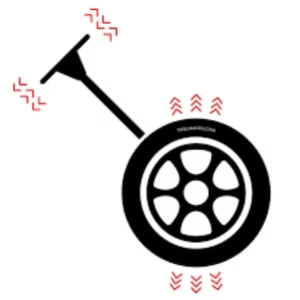
If your car is shaking, a common cause is a tire issue, often stemming from uneven tire wear, improper tire pressure, or unbalanced tires. These factors can lead to vibrations at specific speeds while driving, typically requiring tire rotation, balancing, or even replacement, depending on the extent of wear and damage.
Other Potential Tire-Related Causes of a Shaking Car
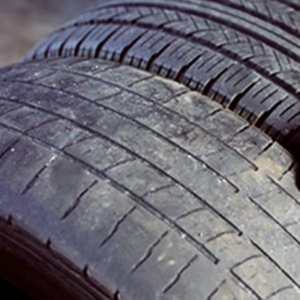
- Worn-Out Tires: Tires with significantly worn treads can create uneven vibrations, affecting overall ride quality and safety.
- Bent Wheels: A bent rim can cause the tire to wobble, leading to noticeable shaking while driving. This often occurs from hitting potholes or curbs.
- Loose Lug Nuts: If the lug nuts securing the wheel are not properly tightened, it can result in vibrations, posing a safety risk.
- Damaged Tires: Punctures, cuts, or other forms of damage can contribute to vibrations. Even small damages can disrupt the tire’s ability to maintain contact with the road effectively.
Brake Issues
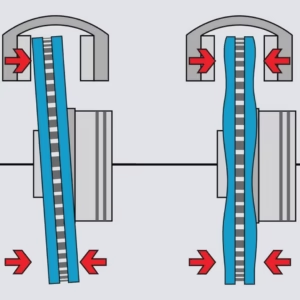
A car shaking when braking typically indicates an issue with the brake rotors, often due to warping or excessive wear. This condition can cause the brake pads to vibrate unevenly when applied, resulting in a noticeable shaking sensation felt through the steering wheel and the entire vehicle. If you’re wondering “why is my car shaking when I brake”, it’s essential to consider other potential causes as well. Additionally, similar vibrations may occur when slowing down or coming to a stop, leading to questions like “why is my car shaking when I stop”. Identifying the root cause of these shaking sensations is crucial for ensuring safe braking performance and overall vehicle reliability.
Most Common Cause: Warped Brake Rotors
Warped brake rotors are a common cause of shaking during braking. This warping occurs when the rotors lose their flat, even surface, often due to excessive heat buildup from hard braking, improper installation, or general wear over time.
When you apply the brakes, the pads should press evenly against the rotor. However, warped rotors create uneven contact, leading to vibrations felt through the steering wheel, brake pedal, and entire vehicle—especially noticeable at higher speeds or during hard braking.
In addition to causing discomfort, warped rotors can compromise braking performance, increasing stopping distances and posing a safety risk. Timely inspection and maintenance are essential to identify rotor issues early, allowing for resurfacing or replacement to ensure safe and effective braking.
Other Possible Reasons
- Worn Brake Pads: Over time, brake pads can wear down and become less effective, leading to vibrations during braking.
- Uneven Brake Pad Wear: If brake pads wear unevenly, they can create instability and shaking when engaged.
- Damaged Brake Calipers: Malfunctioning calipers can affect how evenly the brake pads apply pressure, resulting in vibrations.
- Unbalanced or Worn Tires: Tires that are either unbalanced or excessively worn can contribute to shaking during braking.
- Suspension Issues: Problems with suspension components can affect vehicle stability and contribute to shaking.
- Wheel Alignment Problems: Misalignment can cause uneven tire wear and affect braking performance, leading to vibrations.
Suspension and Steering Problems
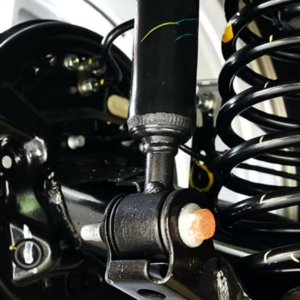
If your car is shaking, especially noticeable in the steering wheel, it may indicate problems with your suspension or steering components. These issues often arise from factors such as worn-out tires, unbalanced wheels, misalignment, faulty brake rotors, or worn suspension bushings, all of which can cause vibrations at various speeds while driving.
Common Causes of Car Shaking: Suspension and Steering
Tire Problems
- Unbalanced Tires: This is one of the most frequent causes of steering wheel vibrations, particularly at higher speeds.
- Uneven Tire Wear: Tires with worn or uneven tread can contribute to shaking during your drive.
- Improper Tire Inflation: Both under-inflated and over-inflated tires can lead to vibrations.
Wheel Alignment Issues
- Misaligned Wheels: Misalignment can cause the vehicle to pull to one side and result in steering wheel shaking.
Suspension Components
- Worn Suspension Bushings: Damaged bushings in control arms or sway bars can lead to instability and vibrations.
- Damaged Shock Absorbers or Struts: Worn shocks can negatively impact road handling, contributing to shaking.
- Loose Tie Rods: Worn tie rods can compromise steering stability and cause vibrations.
Other Potential Issues
- Worn Wheel Bearings: These can create vibrations and noise, especially when turning.
- Bent Wheels: Damaged rims can cause uneven contact with the road, leading to shaking.
- Loose Steering Components: A worn steering rack or linkage can also contribute to vibrations.
Transmission Issues
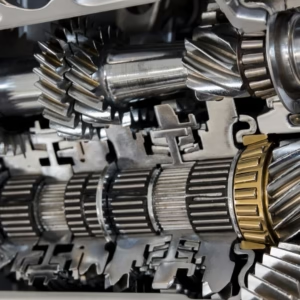
A car shaking, particularly during gear shifts, often indicates transmission issues. Common causes include low transmission fluid, worn transmission mounts, or internal damage to transmission components, all of which can lead to vibrations when changing gears. Other potential culprits may include a faulty torque converter, worn clutch plates in manual transmissions, or problems with the driveshaft or CV joints.
Key Signs of Transmission-Related Shaking:
- Shaking During Acceleration or Gear Shifts: This is the most noticeable indicator, especially when accelerating from a stop or shifting between gears.
- Low Transmission Fluid: Regularly check the fluid level, as low transmission fluid can lead to significant shaking and performance issues.
- Rough Shifting: Difficulty in shifting gears, accompanied by a jerk or shudder during gear changes, is a common symptom.
- Burning Smell: A burning odor from the transmission area may indicate overheating due to internal problems.
- Check Engine Light: If the transmission control module detects a problem, the check engine light may illuminate.
Other Potential Causes
Engine Mount Issues
Damaged engine mounts can lead to noticeable vibrations while the engine is running. These mounts are designed to secure the engine to the vehicle’s frame and absorb engine vibrations. When they become worn or damaged, they fail to provide adequate support, resulting in excessive movement of the engine. This can cause a variety of issues, including vibrations transmitted through the chassis, making the ride uncomfortable and potentially affecting other components. Regular inspection of engine mounts is essential to ensure they are in good condition and to prevent these vibrations from escalating into more significant problems.
Drivetrain Problems
Worn U-joints or CV joints can also cause shaking while driving. The U-joints, which connect the driveshaft to the transmission and rear axle, allow for the movement and flexibility needed when the vehicle is in motion. If these joints wear out, they can create a loose connection, resulting in vibrations that can be felt throughout the vehicle. Similarly, CV joints, which transfer power from the transmission to the wheels while allowing for steering movement, can also become damaged over time. Worn or damaged CV joints can lead to shaking, particularly during acceleration or when turning. Regular maintenance and inspection of these components are crucial for ensuring a smooth and safe driving experience.
When to Seek Professional Help
There are specific symptoms that indicate it’s time to consult a mechanic:
- Progressively Worsening Shaking: If you notice that the shaking in your vehicle is becoming more pronounced over time, it’s a clear sign that something is wrong. Ignoring this issue can lead to further damage and more costly repairs down the line.
- Vibrations During Key Driving Phases: Experiencing vibrations while braking, accelerating, or even idling can signal serious underlying problems. These vibrations can indicate issues with the braking system, drivetrain, or suspension components, all of which require professional assessment.
- Dashboard Warning Lights: The appearance of warning lights on your dashboard should never be overlooked. These lights are designed to alert you to potential issues with your vehicle’s systems. If any warning lights illuminate, it’s essential to have your vehicle inspected as soon as possible to diagnose and address any problems.
Addressing “why is my car shaking” early can prevent costly repairs and keep your vehicle safe to drive.
Preventive Measures
Regular Maintenance
Consistent maintenance is key to keeping your vehicle in optimal condition. Routine inspections allow you to identify and address minor issues before they develop into more significant problems. Make it a habit to schedule regular oil changes, as fresh oil is essential for proper engine lubrication and performance. Additionally, conduct system checks to ensure that critical components, such as brakes, transmission, and cooling systems, are functioning correctly. This proactive approach can save you money in the long run and enhance the longevity of your vehicle.
Tire Care
Proper tire care is crucial for safety and performance. It’s recommended to rotate your tires every 5,000 to 7,000 miles to promote even wear and extend their lifespan. Regular balancing and alignment are also important; these services help prevent uneven wear patterns and improve handling. Keeping your tires properly inflated is another essential aspect of tire care, as it can enhance fuel efficiency and provide better traction on the road.
Engine Tune-Ups
To maintain smooth engine performance, regular engine tune-ups are essential. Follow your car’s manual for recommendations on when to replace spark plugs and ignition coils, as these components are vital for efficient combustion and overall engine function. Additionally, don’t forget to clean or replace air and fuel filters as needed; doing so ensures that your engine receives clean air and fuel, which is crucial for optimal performance and efficiency. Regular tune-ups not only help maintain your vehicle’s reliability but also improve fuel economy and reduce emissions.
Conclusion
Experiencing shaking while driving can be concerning and often indicates underlying issues that need attention. Whether the vibrations stem from engine problems, tire issues, suspension and steering concerns, or transmission difficulties, identifying the root cause is vital for your safety and the overall performance of your vehicle. Regular maintenance, including routine inspections and timely repairs, is essential to prevent minor issues from escalating into significant problems. By staying proactive and addressing symptoms promptly, you can ensure a smoother, safer ride and enhance the longevity of your car. If you find yourself asking, “why is my car shaking,” don’t hesitate to consult a professional mechanic to diagnose and resolve the issue effectively.
FAQs
- Why is my car shaking while idling?
Misfiring engine cylinders or worn spark plugs often cause idling vibrations. - Why is my car shaking at high speeds?
Unbalanced or misaligned tires are common causes of shaking at high speeds. - Why is my car shaking when I brake?
Warped brake rotors or uneven brake pads could be the problem. - Why does my car shake when I accelerate?
Damaged engine mounts or transmission issues may cause shaking during acceleration. - Can bad tires cause my car to shake?
Yes, worn or damaged tires can lead to uneven weight distribution and vibrations. - Why is my car shaking after hitting a pothole?
The impact may have misaligned your tires or damaged suspension components. - How do I fix a car that shakes?
Identify the cause—engine, tires, brakes, or suspension—and consult a mechanic for proper repairs. - Is it safe to drive if my car is shaking?
It depends on the cause, but prolonged shaking can lead to further damage and safety risks. - What are the costs of fixing car vibrations?
Repairs can range from tire balancing (affordable) to engine or transmission work (more expensive). -
How often should I maintain my car to prevent shaking?
Schedule regular maintenance every 5,000-7,000 miles or follow your car’s manual.
If you like reading this post, you may also like
Thanks for reading, for more interesting articles, visit our homepage.

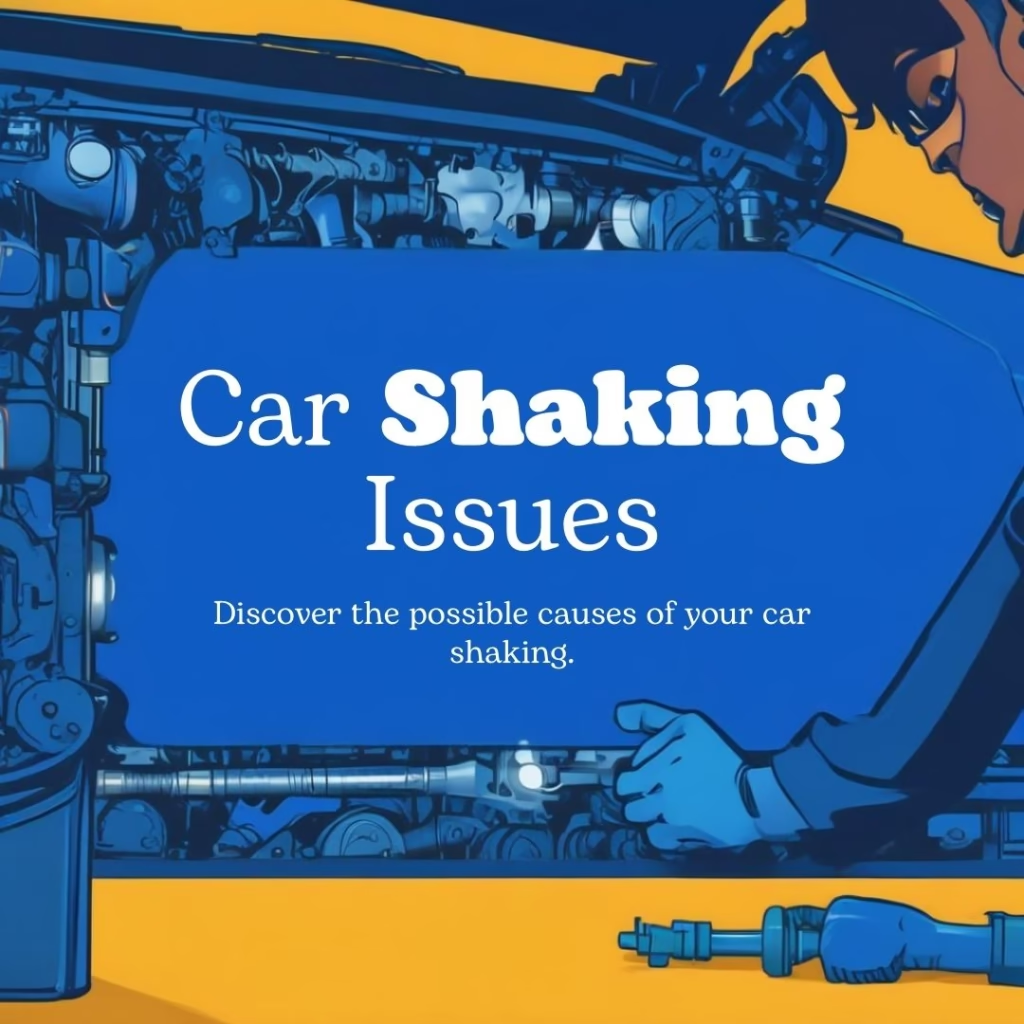

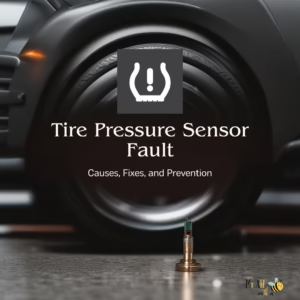
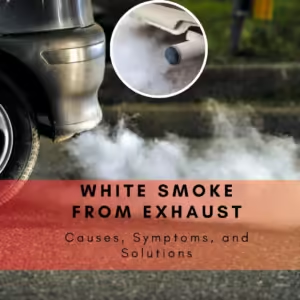



Pingback: Why Choose a Larger or Smaller Diameter for Spare Tire?